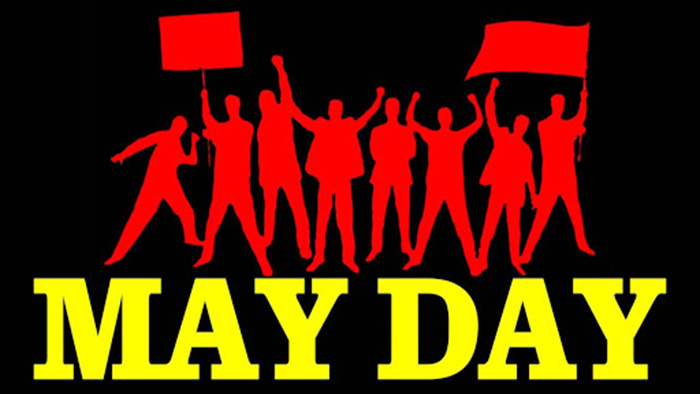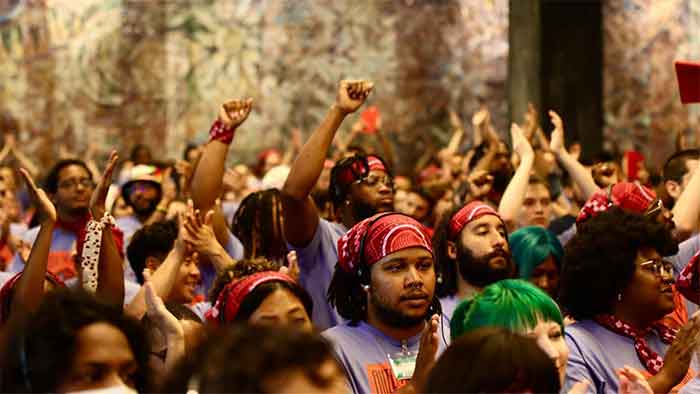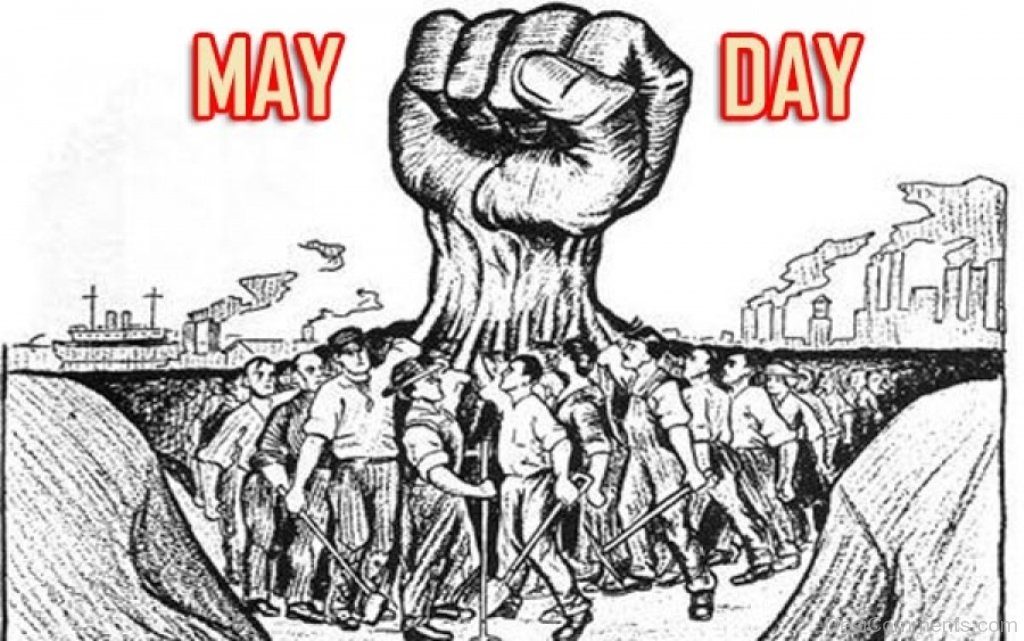
In 1889 an international federation of socialist groups and trade unions designated May 1 as a day in support of workers in commemoration of the Haymarket Riot in Chicago (1886). May Day commemorates the struggles and gains made by workers and the labour movement around the world. It also serves to highlight the deplorable conditions of workers and their oppression under patterns of capitalism whose sole intent is profiteering at the cost of inhumana practices by the elite class against workers.
With globalization in the 1990s, there came the dual construct of economic and political autocracy. An irreversible precondition of those who inserted capital into the economy of developing countries was that host governments had to suppress organized labour unions and take punitive actions against rebelliousness in industry. Though outrageous, this clause became acceptable to fulfill the combine of sheer economic survival. Captains of industry went tough against dissent and threatened workers with ouster if they did not toe the line. Wages ostensibly increased and benefits climbed but the fact remains that the gap between the elite and the working class rapidly mounted.
Organized workers unions tend to claim successes of their organized movements. These assertions are mere pretences because workers in the organized sector in India have also gained access from the benefits of globalization. They have seen how jobs are transferred from high-salaried/prosperous economies to deprived economies, India included, where labour comes cheap. The working class in the more affluent economies loses because the capitalist maneuvers greater profits by paying lesser wages than they would in their own countries. At the end of the day, it is the capitalist that wins.
When it comes to questions of labour rights, a core question is whether there is parallel justice in both the formal and informal sector. Do workers in the informal sector even get minimum wages? The Indian Constitution stipulates a living wage as the minimum income necessary to provide for one’s basic needs – food, shelter, clothing, and medical care, while still saving some money for future investments and enhanced opportunities. Taking into account the financial resources of the industry, a fair wage is one that not only maintains current employment levels but also works to increase it for minimum wages. Many people feel that large corporations are unfairly benefiting from a decades-old. Government should intervene by setting an annual wage change, as is done in many other countries.
The Central Advisory Council established a Tripartite Committee of Fair Wage. At its first session in November 1948 they proposed a minimum wage that does more than just cover basic costs like food, clothing, and shelter; it also left behind money over for other necessities like education and health care.
The Minimum Wages Act of 1948 gave the Central and State governments of India the power to set minimum wage rates in their respective regions. The law does not require compliance with the act, but the act is still law. As a result, the minimum wage varies widely from state to state, and the entire system has become unduly complex. In 2017, the minimum wage for Safai karamcharis (who clean and sweep sewage systems) in Mumbai was set at Rs. 348. However, in practice, they were paid much less. Not too long back, the Karnataka High Court mandated that MGNREGA wage rates be increased to meet the state’s minimum wage. The National Human Rights Commission hosted a regional workshop to figure out what the minimum wage should be for the brick manufacturing industry. The Mazdoor Kisan Shakti Sangathan asked for a review of the rulings of the Karnataka High Court and the Andhra Pradesh High Court in 2012. These attempts, decent as they may be, are not making the difference of being compatible with standards of justice.
A primary argument in favour of a minimum wage is that it keeps the economy stable and ensures that all workers, including non-unionized ones, can afford the basics of minimum wages. Proponents of the current minimum wage argue that workers’ quality of life is improved by increased wages. Legislation mandating a minimum wage is widely regarded as necessary to protect workers from exploitation by dishonest business owners. When workers are paid fairly, it benefits their mental and physical health. There is a multiplicative effect on productivity, employee morale, and the motivation to learn and grow as a result of the health of an organization’s work force. When employees are passionate about their jobs, they are more likely to go above and beyond for their employers. This is why many companies, even if their industry generally pays low wages, choose to pay their employees more than the minimum wage.
Goa granted 12-hour schedules for manufacturers and businesses during Covid and after. The maximum number of hours an employee can work a maximum of 60 hours a week including overtime. No employee can be forced to work overtime for more than seven days in a row according to minimum wages provisions. This is enlightened practice.
Goa is highly dependent on migrant workers for its very survival: 23.6% of the population. Take away the migrant, and the Goan economy will crumble. Covid proved that fact. An ineffectual government offered a pathetic response to their suffering while squeezing them for productivity through industry. Construction workers must contend with horrendous working and living conditions and allows modernizing. Yet, Rs 500 crores meant for their welfare remains unspent this year. The CM and has expediently blamed committee. It is a matter of failed governance. No. The buck stops ate very top. The CM also boldly attributes growing crime to the productive migrant. This needs evidence-based claims as opposed to random allegations lest it breed heightened xenophobia.
Fascist tendencies throughout the country are depriving workers of their fundamental rights. May Day must be an occasion for celebration of workers contributions to the economy and to launch combative, yet peaceful, dissent.
Ranjan Solomon is a political commentator















































